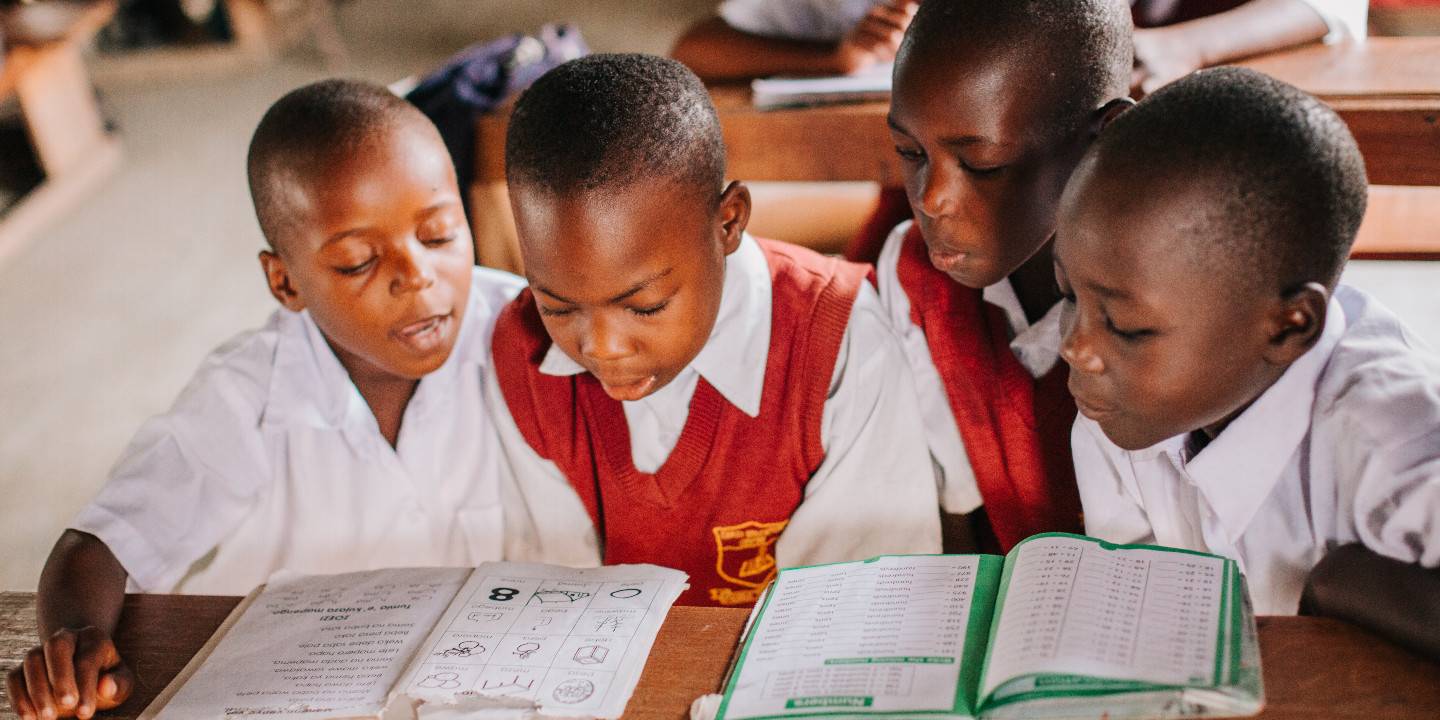
Building capacity in Africa to monitor learning outcomes
Research 22 Aug 2022 6 minute readNew COVID-19 initiative helps to build capacity of countries in sub-Saharan Africa to monitor children’s learning.
COVID-19 has disrupted the education of 1.6 billion children and university students worldwide and there is concern that these interruptions have further exacerbated the global learning crisis. The COVID-19 Monitoring Impacts on Learning Outcomes (MILO) project was designed to assess the impact of the pandemic on children’s learning outcomes in 6 countries in sub-Saharan Africa: Burkina Faso, Burundi, Côte d’Ivoire, Kenya, Senegal and Zambia.
One of the aims of the MILO project was to develop the capacity of countries to monitor learning. Building strong assessment systems is crucial for monitoring learning over time and evaluating and responding to changes in children’s learning outcomes, for example, following the COVID-19 pandemic. The project implementation was therefore leveraged to build sustainable capacity of national assessment teams in developing, implementing and using data from large-scale learning assessments for education system monitoring.
A UNESCO Institute for Statistics (UIS) project, MILO was funded by the Global Partnership for Education (GPE). The Australian Council for Educational Research (ACER) was the technical partner, with support provided from the Global Education Monitoring (GEM) Centre, a long-term strategic partnership between ACER and the Australian Government's Department of Foreign Affairs and Trade (DFAT). Technical and implementation support for the project was provided by CONFEMEN.
In addition to capacity development, which was integral to the MILO project, ACER delivered two learning modules. Initial consultations with participating countries revealed the need for capacity building in the areas of item development, psychometric methodology and data analysis. Based on these needs and the GEM Centre’s Principles of Good Practice in Learning Assessment, a suite of 7 modules in these areas were outlined and proposed to the national centres involved.
Following ACER’s needs-based and collaborative approach to capacity building, each national centre was asked to rank the 7 modules according to their greatest need. The 2 training modules were then selected based on the countries’ needs rankings:
- Module 1: High quality assessment items: Item development
- 1a: Reading
- 1b: Mathematics
- Module 2: Psychometric methods: Introduction to Educational Measurement
The modules were delivered through a combination of live, interactive online sessions and self-paced learning. Small group sizes enabled participants to engage in in-depth discussions, learn from one another and to work with counterparts from other countries. Participants were also encouraged to share learnings with their teams. Materials were provided in both English and French, with the online sessions delivered simultaneously in both languages through support from interpreters.
Feedback through an online survey indicated that participants found the modules useful, as they gave participants important practical skills that could easily be applied to the learning assessments conducted in their countries. Many participants also enjoyed the opportunity to share experiences across countries and were impressed by the expertise of the facilitators and experiences of other participants.
'The capacity building experience for Kenya was really appreciated. It was continuous at every phase of the project, starting from the instrument development. Refining the contextual tools in line with the global good practices gave us hands on training,' said Dr Asumpta K. Matei from the Kenya Examination Council.
Additionally, education stakeholders received ongoing support for implementing the project in their country, including overall project management, and data management training on Maple, ACER’s data management platform.
As Dr Matei explained, 'Training on project management for us, for myself, as a national project manager was robust and it allowed for quality monitoring which really built my capacity in managing such projects.'
Participants also engaged in a standard-setting exercise to locate the global Minimum Proficiency Levels (MPLs) for reading and mathematics on the MILO assessment scale and ultimately, allowed countries to determine whether children were meeting minimum requirements.
The learning modules delivered as part of the MILO project have helped to build the capacity of national and regional education stakeholders to measure and monitor changes in learning outcomes following major disruptions, such as COVID-19. Based on the GEM Centre’s best practice principles for robust assessment programs and its method of aligning assessments with the global MPLs, education stakeholders are now able to identify where learners are at and what they need to progress in their learning.
Further information
Read the COVID-19 in Sub-Saharan Africa: Monitoring Impacts on Learning Outcomes report.
Read about ground-breaking new tools developed through the MILO project to advance measurement of SDG 4.
Watch the Understanding COVID-19 impacts on Learning Outcomes webinar.
Visit the MILO website.
Find out more about the GEM Centre’s work.
